These foods will help nourish your growing baby and instill good eating habits in their early years of life!
Watermelon is actually not on this list of first foods. Although, not an unhealthy food, it’s not an ideal first food. But, try searching stock photo sites for babies eating liver and egg yolks! You won’t find much. Unfortunately, you will be much more likely to find images of new eaters chowing down on pastries and candy. I guess that makes for cuter photos!
Every baby deserves to be healthy and is entitled to their health. I believe it is something that every parent wants to provide for their child. However, it becomes difficult to know which the right foods are, when the so-called-experts and popular medical sites, like Web MD advise the following, “In addition to baby cereal, you can start your baby out with pureed fruits and vegetables. What kind? It doesn’t matter that much, as long as you offer a variety”.
Actually, WebMD it does matter! You see, babies do not make enough amylase, the enzyme needed to break down carbohydrates. Babies develop enzymes as their digestive system matures. So, not only is rice cereal lacking in nutrients, it is also harsh on a baby’s developing digestive system.
First Foods that will Nourish your Growing Baby
Many pediatricians recommend introducing iron-fortified rice cereal as baby’s first food because they believe rice to be a low allergenic food, and some babies need additional iron other than mom’s milk after 6 months. Babies have enough iron stored for at least the first 6 months, sometimes even longer.
Iron is partly the reason that many cultures introduce animal foods first, including American culture historically. Check out the old swift baby food ads below! Animal foods provide the most readily available nutrients and babies produce the enzymes and stomach acid needed to break down proteins and fats.
Animal foods also provide complete protein, cholesterol and healthy fats. Grains, legumes and even green-sources of protein are always lacking in one or more essential amino acids. Cholesterol is critical to the formation of the brain and nervous systems, as well as the digestive tract.
Children need healthy fats to grow and develop. Fats are rich in the fat soluble vitamins, A, D and K. These are essential for normal growth and hormone production. Meat is also a great source of zinc, iron and B-vitamins.
Whenever possible, choose organic. According to the Weston A. Price Foundation, babies are more “vulnerable to pesticide exposure because their organs and body systems are not fully developed and, in relation to body weight, they eat and drink more than adults”.
Ideal First Foods for Your Growing Baby
Soft-boiled Egg Yolks provide cholesterol, which is critical for the development of the brain and nervous system. They are a great source of choline, which is an important nutrient that we don’t often hear about. It is important for brain cell development, as well as nerve and liver function. Whenever possible choose eggs from pasture feds hens, these will also be richer in omega-3s. Egg whites can be highly allergenic and should be avoided until the age of 1.
Liver is nature’s true super food. Liver is a powerhouse of nutrients. It is a great source of cholesterol. It’s loaded with vitamins and minerals, including choline, iron, B-vitamins, D3 & K2. K2 is a very important nutrient that we don’t find in many foods. It contributes to the development of strong bones and teeth and even the facial structure. It is also important for energy production in the body. Organic & Grass-fed varieties are best!
How to Cook Liver
People often ask me how to serve liver. You can grate organic, raw liver into egg yolks. If using this method, make sure to freeze the liver for 14 days, in order to kill any pathogens. A second option, which is what Indy prefers, is to brown it lightly with some ghee and then blend it with some bone broth to thin it to your desired consistency. We sprinkle it with a little sea salt too for additional minerals and flavor.
Bone-broth is rich in collagen, gelatin, amino acids and many minerals. The calcium in bone broth is in a form that is very easy for the body to absorb and digest. The gelatin also has many benefits, including improving digestion and soothing the GI tract. In addition, it has been found to build strong cartilage and bones and it has benefits for the skin, immune system and heart.
Mashed Banana is one of the few carbohydrates that naturally contain amylase, making it easier for babies to digest. Choose ripe, spotted ones.
Mashed Avocado is a rich source of quality fat.
After about a month or when your baby seems ready, you can start adding a larger variety of foods. Below are some good options.
Grass-fed butter and ghee contain vitamin A, E & K2. Here is a great list of brands of butter from grass-fed cows.
Coconut oil: Is a great source of healthy fat and it is an excellent source of lauric acid, only second to breast milk! We love this brand, as it is raw in rich in nutrients.
Pureed or strained beef: Braise the meat in bone broth, then puree or strain it to make it more digestible for the baby. It’s best to choose grass-fed meat to maximize nutrients and avoid antibiotics and hormones.
Bone marrow: Is another great source of quality fat, that is loaded with nutrients and has a delectable taste.
Sweet potato, squash, carrots, parsnips and rutabagas are vegetables that are easy to digest, but should always be served cooked to young babies. It is important to serve these with healthy fats, to help the baby absorb the fat soluble vitamins available. We usually cook ours in homemade bone broth, so the vegetables can soak up minerals from the broth and become more digestible.
Tropical fruits are also a good early food because they are high in enzymes, making it easier for the baby to digest. Cantaloupe, mango and papaya are good options.
This post focused only on the early first foods. For a more comprehensive guide on feeding your baby nourishing foods from first foods through toddlerhood, I highly recommend Super Nutrition for Babies. It is a very comprehensive and thoughtfully written book with appropriate foods to introduce at each stage, recipes and suggested schedules.
The approach we take is two-fold. We emphasize nutrient dense foods in our baby’s diet and we also want to create an environment where she relaxes and enjoys her meals. You can find my 9 Tips for Raising Adventurous and Mindful Eaters in this post.
I have also made you a handy guide to print out and refer to when starting solids!
For further reading:
- Super Nutrition for Babies by Kelly Gelzinger and Katherine Erlich, M.D.
- The Nourishing Traditions Book of Baby & Child Care by Sally Fallon Morell and Thomas S. Cowan
- Nourishing a Growing Baby by Jen Allbritton, CN
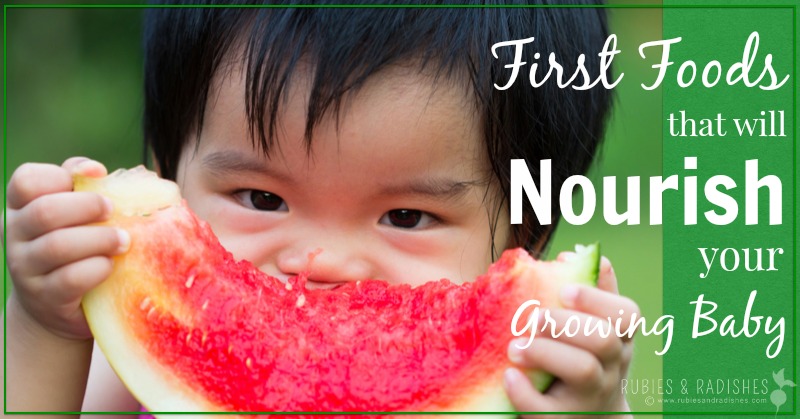
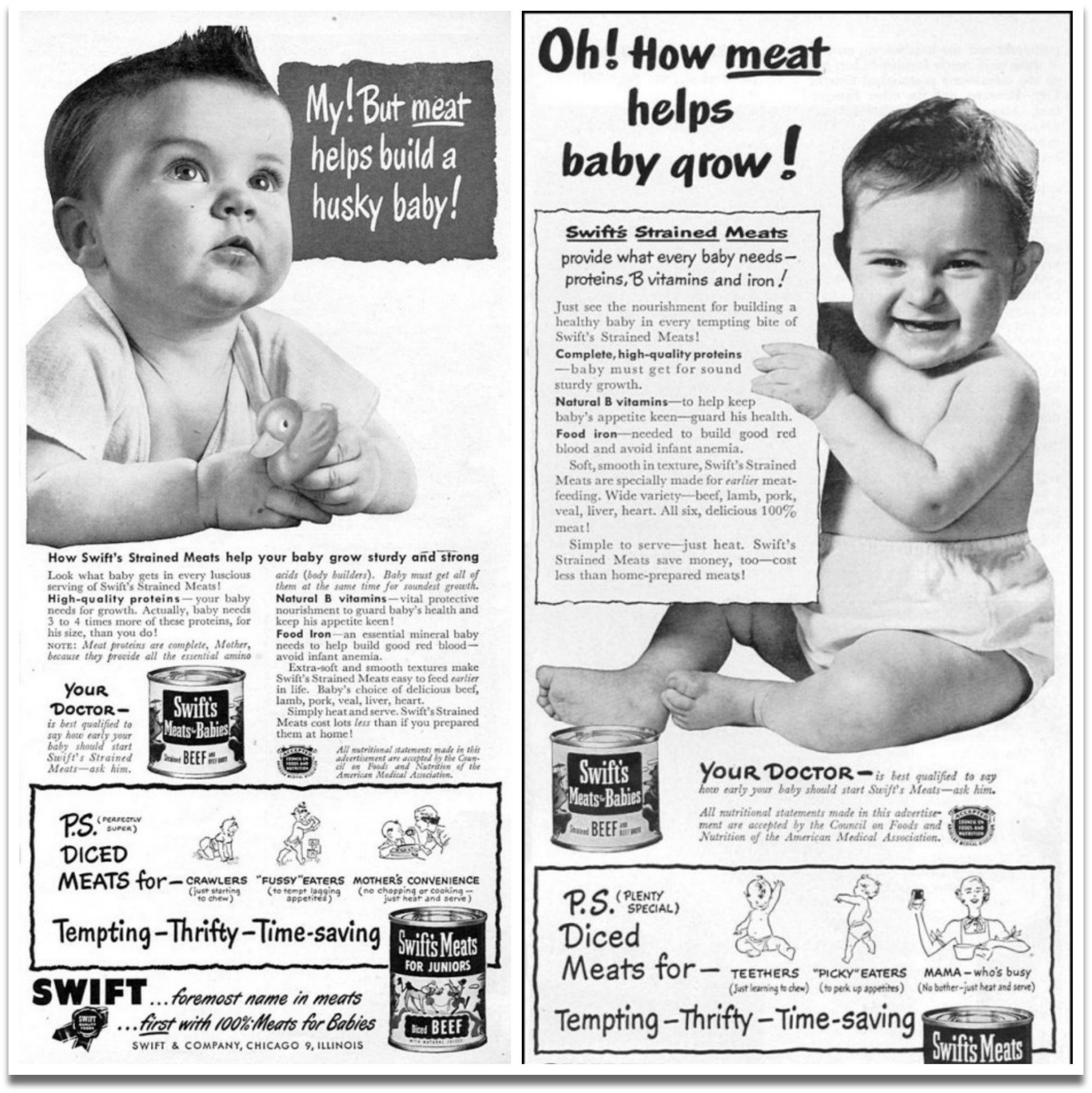
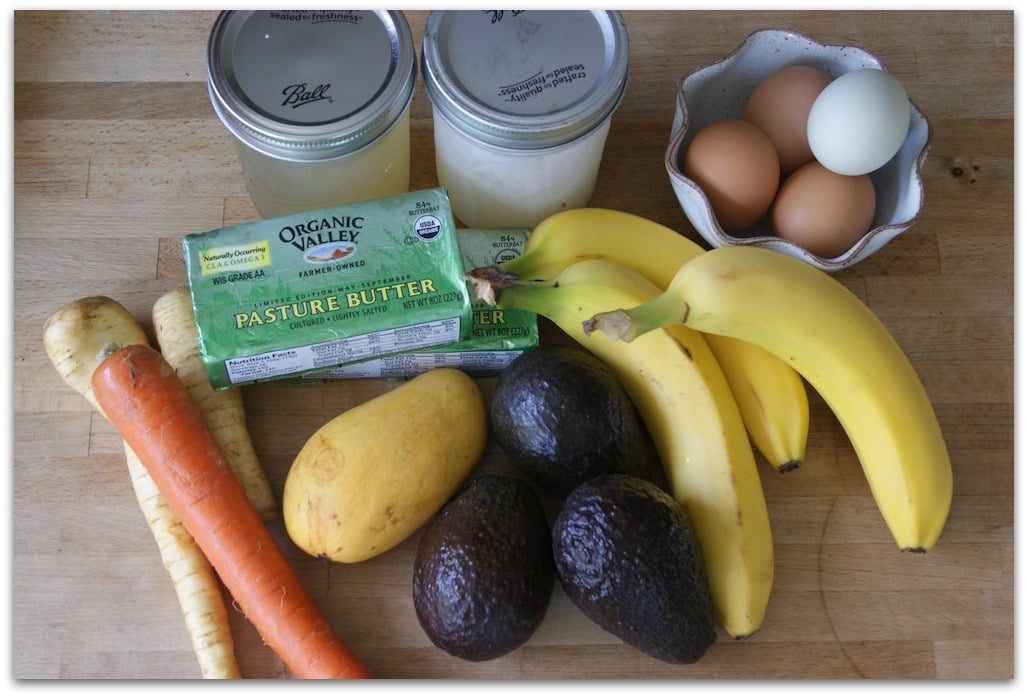
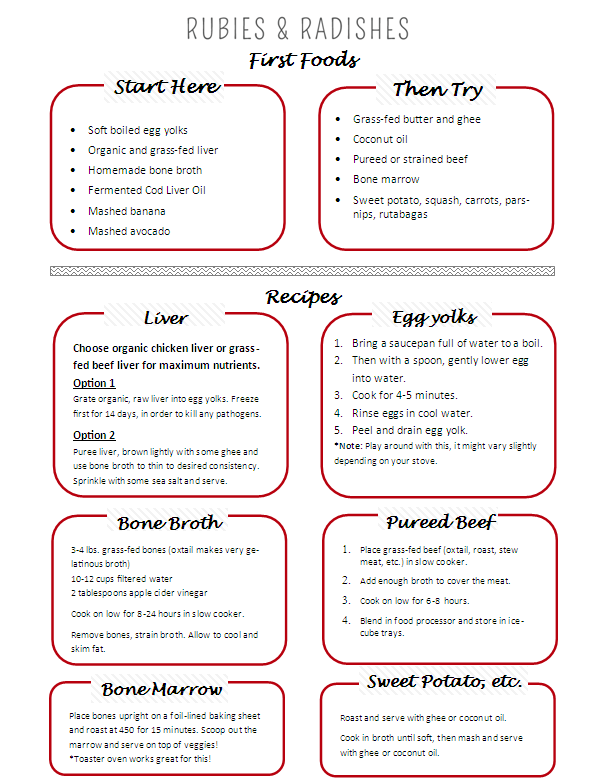

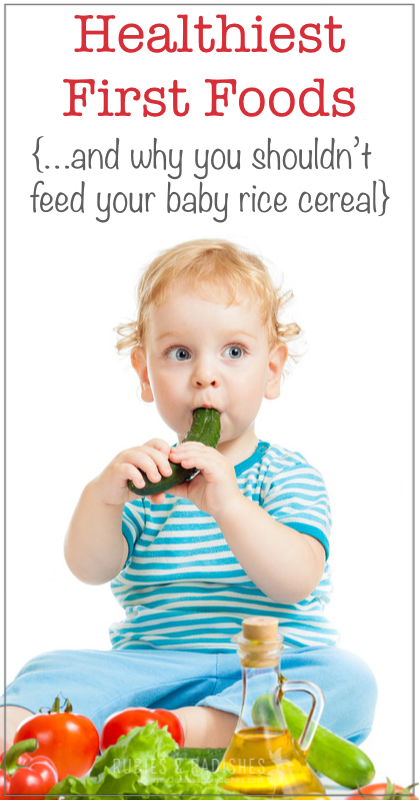


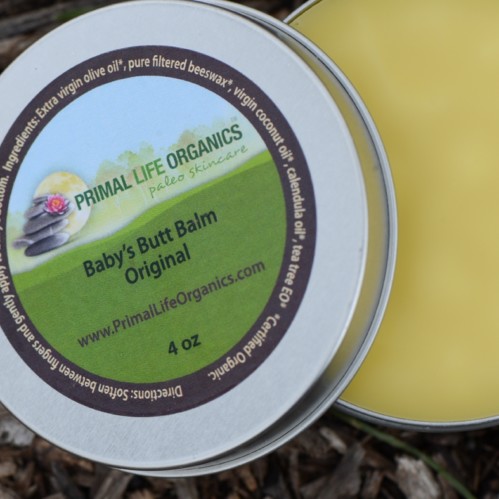
About babies getting enough iron, please take the time to watch this video: http://www.youtube.com/watch?v=Cw53X98EvLQ
Thank you for sharing, Lisa! This is a very interesting video, the statistics were alarming. I very much agree with him on the importance of delayed cord clamping. All expecting parents should watch this! As far as iron for infants, I think it is important to get it from real foods, whenever available, opposed to from supplements.
Love this post! I emailed a link to some family and friends. We were given a lot of weird stares and comments when we told people we weren’t giving our daughter cereal. She started with avacado and bananas and soon after eggs and sweet potatoes. I think informing parents about good, clean eating is so important! I’m always shocked to hear how many parents still buy and feed their children “cereals” and processed foods simply because it has been the “standard” in our American diet. My 19 month old has yet to have a Cheerio…and I don’t think she’s missing out on anything!
Thank you so much for sharing my post with your friends and family! I agree with you 100%, that it is really unfortunate how many little ones are given processed foods as standard procedure.